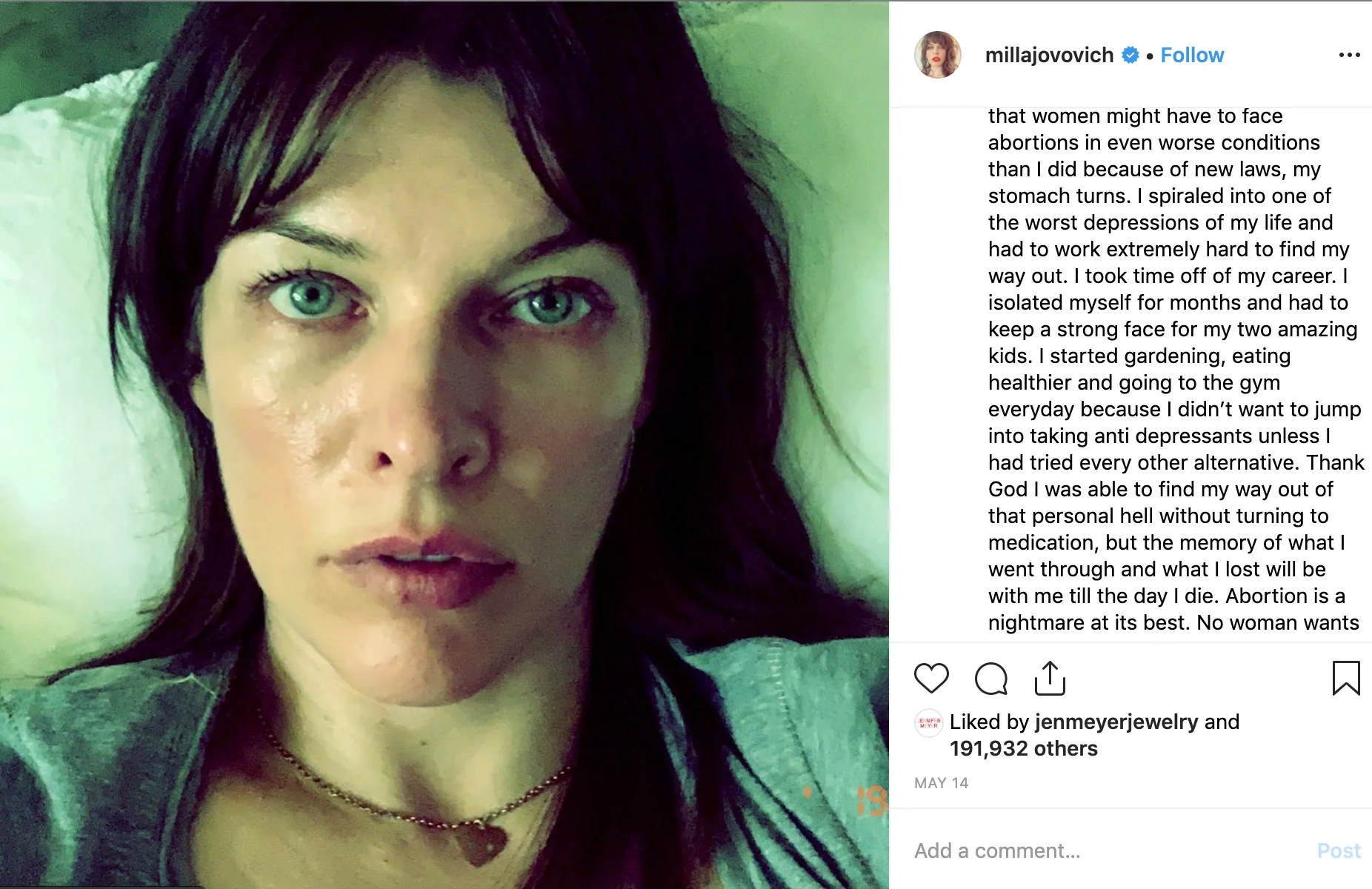Real Talk: Depression
There’s a movement afoot to normalize therapy, antidepressants and talking about your problems. Even the royal family, by way of Prince Harry, is trying to shed some of its stiff upper lip. But to put it bluntly: We suck at discussing mental health.
So what are we getting wrong?
Not that there’s anything wrong with that
We’ve done a lot to start the conversation, but we aren’t paying much attention to what we’re saying, or how. Case in point: Model and actress Mila Jovovich recently posted in depth about the depression she felt after an emergency abortion. She wrote:
I spiraled into one of the worst depressions of my life and had to work extremely hard to find my way out. I took time off of my career. I isolated myself for months and had to keep a strong face for my two amazing kids. I started gardening, eating healthier and going to the gym everyday because I didn’t want to jump into taking anti depressants unless I had tried every other alternative. Thank God I was able to find my way out of that personal hell without turning to medication.
This post raises so many red flags. First and foremost: What’s wrong with medication? When someone has experienced a deep trauma, medication is often used in conjunction with therapy to help with recovery. It doesn’t need to be a personal fight; you can, and should, get help.
This would make sense if the trauma was physical. For a badly sprained ankle, you’d take ibuprofen and go to physical therapy. Both of these are considered normal, and just muscling through things isn’t recommended. But when it comes to mental trauma, we think differently, and Jovovich furthers a persistent and dangerous stereotype: That self treatment is preferable, and professional help is a last resort.
She is by no means the only one. There’s a constant need to qualify any type of mental health care with “I’ve tried everything else” or by linking treatment to a traumatic episode. It’s precisely this mentality that keeps people who aren’t reeling form extreme situations from seeking help. It’s Seinfeld’s “not that there’s anything wrong with that” amplified to new levels.
On a personal note
I was depressed after my mom died. With time, the crippling sadness passed. But I developed new habits, including intense lethargy and increased introversion.
Eventually, it became problematic. I talked to my doctor and therapist. I got my thyroid tested. I ran marathons and did a lot of yoga. I changed jobs. But nothing helped: The only thing I wanted to do was stay in bed. I could, and often did, go days without leaving my apartment. Still, it took years for these symptoms to get paired with a diagnosis. When I finally went on an antidepressant, it changed everything.
Still, I don’t willingly share the fact that I take a pill every day. When I do tell friends or boyfriends, I almost always caveat it with, “It started after my mom died,” as if this qualifier proves I’m not inherently broken. Instead, the world broke me. This seems more palatable.
Funnily, people often praise me for “trying everything else” first. It’s odd to me that this is considered noble or ideal, because from where I’m sitting, this approach cost me countless weekends in my 20s when I could have been having fun in New York City.
The pill problem
We are (perhaps rightly) scared of pills in America. There’s an opioid epidemic and we’re a “prozac nation.”
But I suspect this massive aversion to medication may make it easier for doctors to overprescribe, not harder. If doctors are presented primarily with extreme cases, they’re more likely to treat every case as extreme. Medication becomes a go-to solution.
We also make it easier for doctors to misdiagnose symptoms. For instance: How many tests are run, prescriptions written and symptoms treated for the side effects of mental disorders, like depression, anxiety and compulsion, without treating the root cause?
Often, general practitioners are not sufficiently aware of symptoms to provide proper referrals. Even more common: Patients aren’t educated enough to request them.
Raising awareness amongst everyone can only improve the quality of conversation and put medication in context.
Embrace the crazy
We need to get real about the term “mental illness.”
I struggle with how to do this, because in some ways, I want to use the word illness more, not less. Illnesses can be treated and if we refer to mental health conditions as illnesses, perhaps people will be more inclined to do so.
But we also need to be careful because “mentally ill” is a synonym for “crazy” and that label still carries with it some of the worst associations of our society.
In particular, crazy often implies a sort of permanence, when in reality, many mental health conditions are temporary and most are treatable. Medication and therapy are not a sign of a problem, they’re a sign the person is well (or working toward it).
The craziest aspect of mental health may very well be the way we talk about it.
Which brings me to why I wrote this post. I said I’d offer a solution, so my conclusion is this: I’d like us to be more open about our own struggles. That includes embracing our vulnerabilities and abandoning all of the qualifiers that make our issues feel more acceptable. For me, this means being more frank about taking medication and moving away from the disclaimer that “it started when mom died.”
While that’s true, it’s also been nearly seven years. It’s high time I #EmbraceTheCrazy, and if you’re reading this, I urge you to do the same.
